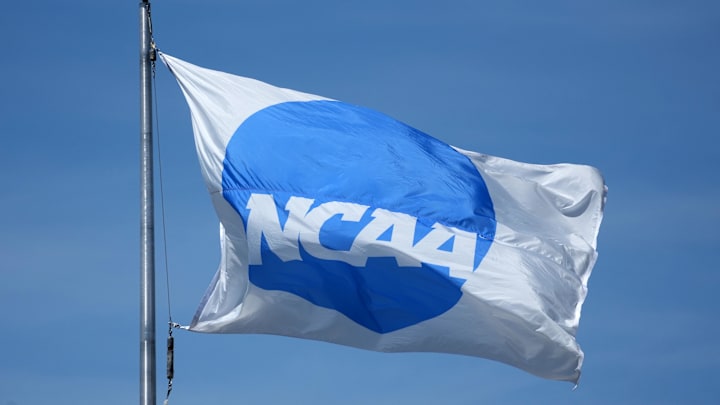Tim Pernetti is about to enter his second season as the commissioner of the American Ath … I mean, the American Conference.
Say this for the man: He understands that the college landscape we all grew up with is likely gone forever. Rather than rage, rage against the dying of that light, Pernetti is trying to position the American for whatever comes next in the world of athletics.
That much became clear Friday when he spoke at the conference’s football media day.
“What a smooth, uneventful school year in college sports, right? Nothing happened,” he joked, but then added, “the list of hot topics is growing, so let's talk about it.”
He rattled off items such as the NCAA’s settlement with the U.S. House regarding compensation for college athletes.
“We opted in to the revenue sharing model,” he said. “Why? It's critical to the future, and another illustration of our commitment to consistently invest in student athletes.
“It's also important that we wrap our arms around it, and it's not easy to do everything that's happening in Washington, D.C. right now. Federal engagement in college athletics is intensifying. Why? Because it's important and people care about it.”
Last year, the American became the first Division I conference to mandate a minimum of $10 million per school that will be used to pay athletes across all sports. USF has said it will use $20.5 million – the largest amount currently allowed under the House settlement – for its athletes.
“The outcome of these efforts will redefine the structure of college athletics. It will never look the same. Is the employment model the answer? Could it solve some of the challenges? I want to know how that model will protect our Olympic sports athletes,” he said.
“Here is one thing I do know: compensation brings narrative. We have to avoid the lazy branding that if you're paid, you're professional.”
Other bullet points Pernetti addressed:
- Player availability.
The American will implement a player availability reporting system for game day. Reportedly, three hours before a game, teams will be required to release the names of players who won’t suit up for that contest.
- Media rights.
Pernetti suggested consolidating media rights across all conferences, similar to what professional sports leagues do. He believes this move could increase profits for all programs.
‘’Everybody being out there fighting it out for themselves has worked to a point, but given the unsustainable nature of the economics, they just don't make sense,” he said.
“This is something that can create a financially sustainable future, but whether it's private capital, whether it's smash capital, a college sports tomorrow. There are a lot of ideas out there that are provocative, and I encourage everybody in the industry to listen.”
- The Transfer Portal
The Wild West created by the Transfer Portal must be modified.
“Last year, after winning our football championship, Army was on the receiving end of the negative impact of the Transfer Portal, instead of playing another league champion in a bowl game, which they were set to do, Marshall reneged on their commitment to play in that game, citing an inadequate roster due to transfers during the December portal window between the end of the season and bowl games. What the hell are we doing with the current structure?” he said.
There is a movement to create a single portal window.
“Student athletes should absolutely have the opportunity to transfer one time freely,” he said.
“Coaches change, family situations change. It's reasonable, but beyond that transfer, maybe additional transfers should perhaps require the year in waiting.”
Pernetti also stressed the value athletics can bring to a college or university and why they should invest in their programs.
- It's a business
“Let's talk about modernizing, protecting, and growing our business. And yeah, it's a business. Business is not a dirty word. This is a mission-driven business, while the world of college sports, including me, debates the symptoms, realignment collectives, NIL, and legal governance. The root issue remains unchanged,” he said.
“The Economics of college athletics simply don't make sense. The business is unsustainable. It's undervalued. It's not been optimized. And I'll tell you this optimizing, it is going to take collective action. It's going to take everybody, and it's going to take guts. It's time to stop apologizing for wanting to generate more revenue and running a business. Our business is investing in college athletics, college athletics, and I say this to all of our presidents every chance I get, is the single strongest marketing arm of any university.”
